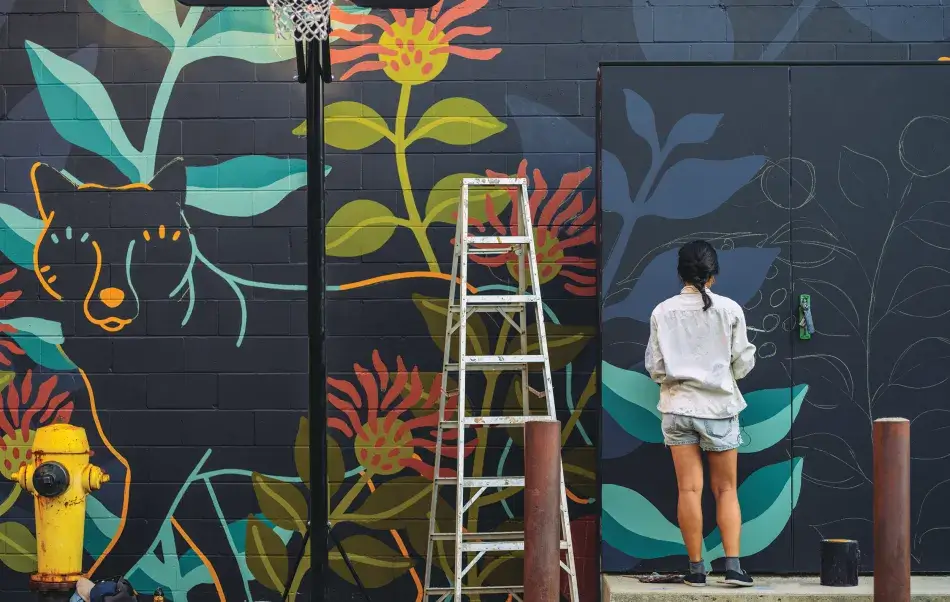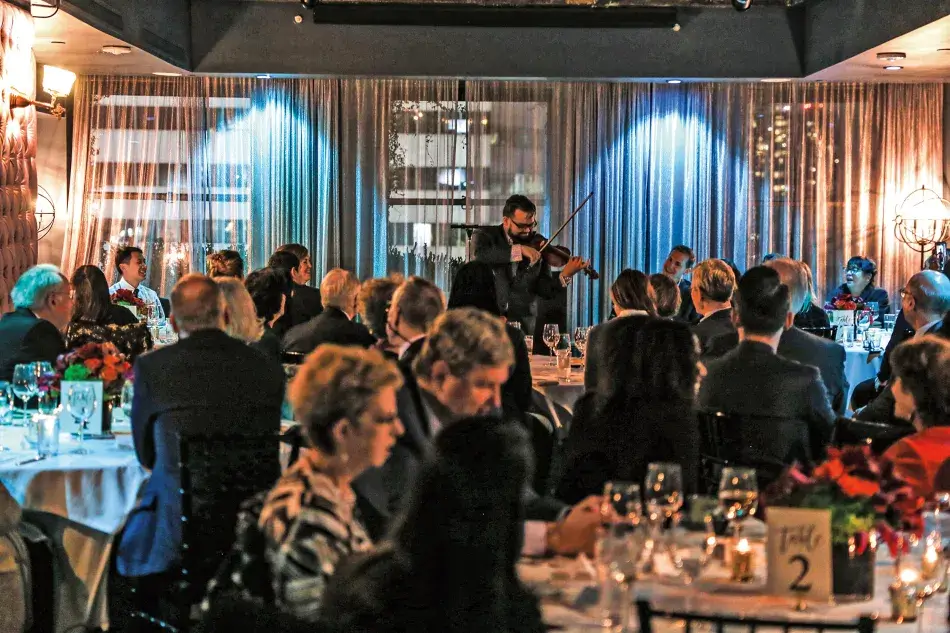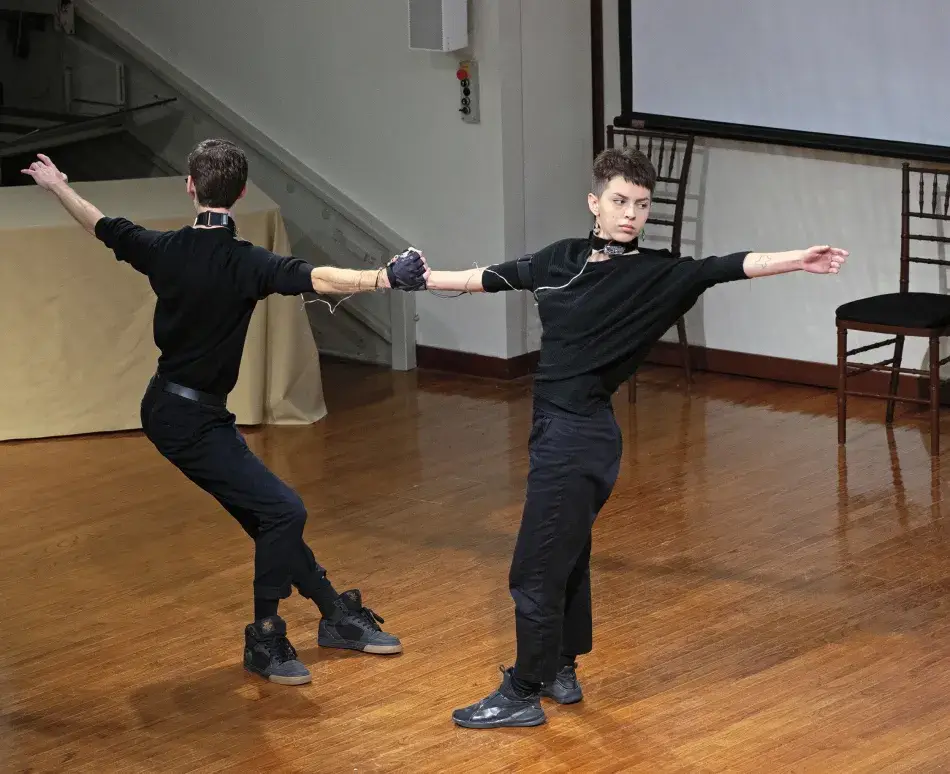
The Commission on the Arts is the Academy’s first major programmatic effort focused on the arts and culture. At its center is the belief that the arts are essential to both individual and civic life and that artists are crucial to the functioning and development of healthy communities.
Through research, data collection, and ongoing conversations, the Commission, formed in late 2018, is examining the role of the arts in American life. The national focus of the project is reflected in the composition of its membership, which spans the cultural field and the geography of the United States; its members represent over a dozen states and more than forty organizations, disciplines, and institutions. This expansive group of experts, scholars, and practitioners is led by co-chairs John Lithgow, actor and author; Deborah Rutter, President of the John F. Kennedy Center for the Performing Arts; and Natasha Trethewey, Professor of English at Northwestern University and former Poet Laureate of the United States.
The Commission’s work is centered around four working groups:
Arts in Education
Led by Roberta Uno, Director of Arts in a Changing America; and Rod Bigelow, Director of Crystal Bridges Museum of American Art, the arts in education working group holds the value of arts access and learning as its central tenet and seeks to create an evidence-based, value-centered report that argues for the necessity of the arts in every student’s education. The report will highlight existing inequities in access and illustrate the effects that the absence or presence of the arts in a child’s formative years has on long-term indicators of happiness and well-being.
Arts in Community and Economic Development
Led by Laura Zabel, Executive Director of Springboard for the Arts, the arts in community and economic development working group is examining both publicly and privately funded programs that support arts and culture initiatives at the national level. By researching and highlighting the opportunities that exist for artists to be embedded in community and economy-building programs, the group will offer recommendations and guidelines that foster greater equity in the field and increase the value that creative perspectives are granted in traditionally noncreative sectors.
Arts in Civic Engagement
Led by Felix Padrón, former Director of the Department for Culture and Creative Development in San Antonio, Texas, the arts in civic engagement working group seeks to advance and support the role of artists, arts organizations, funders, and community leaders in fostering civic dialogue. Committed to the idea of art’s capacity to bridge divisions, the group’s work will serve to empower artists, funders, and the public to build the connections necessary for the functioning of a healthy democratic society.
Arts in Everyday Life
Led by Maribel Alvarez, Executive Director of the Southwest Folk Life Alliance at the University of Arizona, the arts in everyday life working group is building a bold, participatory campaign on how engaging with the arts–whether as a creator or enjoyer–adds meaning to individuals’ lives. Marrying data with anecdotal accounts of the arts’ significance on a personal level of engagement, the working group is striving to include as wide a cross section of perspectives as possible in order to demonstrate the variation and diversity of the roles that creative expression plays in day-to-day life.


Each of these working groups, building on the collective knowledge and experience of its members, is generating research and recommendations that both reflect and strengthen the value of the arts and artists in American life. To facilitate this work, the Commission is also building partnerships with arts and culture organizations at local, regional, and national levels and will host virtual listening sessions that invite diverse audiences from across the country to provide the Commission with insights about the role of the arts in their communities. These conversations will provide greater understanding of the challenges facing arts organizations and artists, the ways in which those challenges may be mitigated, and the reasons creativity and art are necessary to the well-being of individuals and their wider communities.
The Commission has held a number of meetings to date. In May 2019, the Commission sponsored a webinar on the Sound Health project, a collaborative program between the Kennedy Center for the Performing Arts and the National Institutes of Health, in association with the National Endowment for the Arts. The webinar, “Music and the Mind,” explored the relationship between music and the brain and featured award-winning singer Renée Fleming (Kennedy Center’s Artistic Advisor at Large), Francis Collins (National Institutes of Health), Deborah Rutter (The Kennedy Center for the Performing Arts), and Sunil Iyengar (National Endowment for the Arts).
In October 2019, the Commission hosted a conference on the integration of the arts, humanities, and STEM in higher education in partnership with the National Academies of Sciences, Engineering, and Medicine. The program, “Branches from the Same Tree: Conversations on the Integration of the Arts, Humanities, and STEM in Higher Education,” drew educators, researchers, and community arts leaders from across New England to the House of the Academy for a full day of presentations and discussion.
A second webinar, “New Developments in Rural Arts and Culture,” which focused on rural arts and culture programs, took place in late 2019 and featured leaders of rural area community organizations from across the country, including Matthew Fluharty (Art of the Rural), Michelle Ramos (Alternate ROOTS), Jonny Stax (Organizational Consultant and producer of ArtFarm), Kara Schmidt (Black Vulture Project and Paoli Fest), and Laura Zabel (Springboard for the Arts).
In addition to these outreach and learning engagements, the members of the Arts Commission have met as a group on three occasions: in January 2019 in Cambridge; in June 2019 in New York; and in January 2020 in Los Angeles.
The meeting in Los Angeles included a special program that celebrated the arts and their contribution in shaping the city of Los Angeles. Mayor Eric Garcetti spoke about the capacity of the arts and culture to build connection and transform communities. He described the city’s history and deep roots in a diverse array of cultural traditions that continue to inform every aspect of life for Angelinos. The program also featured a poetry reading by former Poet Laureate of the United States and Commission co-chair Natasha Trethewey as well as a performance by Vijay Gupta, violinist, social justice advocate, and member of the Commission.
As the work of the Commission continues amidst the ongoing COVID-19 crisis, an appreciation of the arts’ indispensable role in our lives takes on new urgency. Recognizing the importance of the arts in offering us solace and hope during difficult times, but also how vulnerable the sector is in times of growing economic uncertainty, the Academy’s work aims to strengthen and support artists, arts education, and the arts in communities across the country.
For more on the Commission on the Arts, please visit www.amacad.org/project/commission-arts.